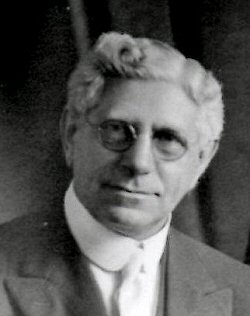A Quote by G. H. Hardy
A science or an art may be said to be "useful" if its development increases, even indirectly, the material well-being and comfort of men, it promotes happiness, using that word in a crude and commonplace way.
Related Quotes
Common grace curbs the destructive power of sin, maintains in a measure the moral order of the universe, thus making an orderly life possible, distributes in varying degrees gifts and talents among men, promotes the development of science and art, and showers untold blessings upon the children of men.
Material objects give rise to physical happiness, while spiritual development gives rise to mental happiness. Since we experience both physical and mental happiness, we need both material and spiritual development. This is why, for our own good and that of society we need to balance material progress with inner development.
There are two kinds of truth; the truth that lights the way and the truth that warms the heart. The first of these is science, and the second is art. Without art science would be as useless as a pair of high forceps in the hands of a plumber. Without science art would become a crude mess of folklore and emotional quackery.
We ask God to endow human souls with justice so that they may be fair and may strive to provide for the comfort of all that each member of humanity may pass his life in the utmost comfort and welfare. Then this material world will become the very paradise of the Kingdom this elemental earth will be in a heavenly state and all the servants of God will live in the utmost joy happiness and gladness. We must all strive and concentrate all our thoughts in order that such happiness may accrue to the world of humanity.
Magic is a combination of art and science. It's an art because of the traditional parts of things, the graceful gestures, the sonorous invocations, the use of colour, sight, sound, all of these things make it very much an art form. Yet it is also a science as well because we expect something to come of what we do. Using and creating these almost dreamlike inner landscapes in which we can live, move, and have our being.
If humanity is to survive, happiness and inner balance are crucial. Otherwise the lives of our children and their children are more likely to be unhappy, desperate and short. Material development certainly contributes to happiness - to some extent - and a comfortable way of life. But this is not sufficient. To achieve a deeper level of happiness we cannot neglect our inner development.
The well-educated young woman of 1950 will blend art and sciences in a way we do not dream of; the science will steady the art andthe art will give charm to the science. This young woman will marry--yes, indeed, but she will take her pick of men, who will by that time have begun to realize what sort of men it behooves them to be.
There are two kinds of happiness - the temporary pleasure derived primarily from material comfort alone and another more enduring comfort that results from the thorough transformation and development of the mind. We can see in our own lives that the latter form of happiness is superior because when our mental state is calm and happy, we can easily put up with minor pains and physical discomforts. On the other hand, when our mind is restless and upset, the most comfortable physical facilities do not make us happy.
What do you think science is? There is nothing magical about science. It is simply a systematic way for carefully and thoroughly observing nature and using consistent logic to evaluate results. So which part of that exactly do you disagree with? Do you disagree with being thorough? Using careful observation? Being systematic? Or using consistent logic?
Gradually, ... the aspect of science as knowledge is being thrust into the background by the aspect of science as the power of manipulating nature. It is because science gives us the power of manipulating nature that it has more social importance than art. Science as the pursuit of truth is the equal, but not the superior, of art. Science as a technique, though it may have little intrinsic value, has a practical importance to which art cannot aspire.
There is great freedom in simplicity of living, and after I began to feel this, I found harmony in my life between inner and outer well-being. There is a great deal to be said about such harmony, not only for an individual life but also for the life of a society. It's because as a world we have gotten ourselves so far out of harmony, so way off on the material side, that when we discover something like nuclear energy we are still capable of putting it into a bomb and using it to kill people! This is because our inner well-being lags so far behind our outer well-being.



































